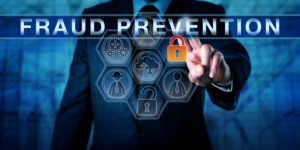Like businesses, homeowners associations experience fraud on a regular basis. Luckily, there are some things you can do to safeguard your community from HOA fraud.
Learn to Prevent HOA Fraud in Your Community
Believe it or not, there are many cases of HOA fraud across the United States. After all, a homeowners association is an organization run by a group of volunteer individuals, so it is definitely susceptible to fraudulent activity.
In fact, it only takes a single dishonest board member to commit fraud in an association. This board member can take advantage of their access to HOA funds and the busy lives of their fellow directors.
Protecting your community from HOA fraud is paramount to success. Your association relies on funds to continue operations, so fraud can be detrimental to your community. While there will always be people with ill intent, there are some steps you can take to prevent or catch fraudulent acts in your association.
Types of HOA Fraud
These are the most common types of HOA fraud:
- Embezzlement or Theft – This type of HOA fraud is quite straightforward and involves a person or persons stealing the HOA’s funds for themselves. Typically, HOA embezzlement happens in increments over a long period of time.
- Altering HOA Financial Documents – This type of HOA fraud happens when a person intentionally lies or exaggerates financial documents with the intention of pocketing the extra money. It can also happen when a person destroys records relating to HOA finances.
- Kickbacks or Bribes – An association regularly deals with vendors. Kickbacks or bribes happen when a board member (or board members) accepts gifts, cash, or favors in exchange for a vendor contract. A board member receiving a portion of the contract money is also considered a kickback or bribe.
- Election Fraud – HOA fraud can also take place during election time. This happens when individuals plot to get their co-conspirators elected so they can collectively use their power to steal from the association in various ways.
How to Protect Your Community from Homeowners Association Fraud
 The misappropriation of HOA funds can elicit a wave of problems for your association. Not only will your board have less to work with in terms of operating funds, but it can also spell legal troubles.
The misappropriation of HOA funds can elicit a wave of problems for your association. Not only will your board have less to work with in terms of operating funds, but it can also spell legal troubles.
If you want to protect your association from HOA fraud, consider taking the following actions:
1. Require Two Signatures
A good way to prevent fraud in your association, or at least reduce its chances, is to require two signatures on HOA checks. This applies to both operating and reserve funds.
Allowing only the treasurer to sign checks is an example of an improper procedure. This type of process may seem tedious, but it guarantees that at least two people review check payments before they go out.
If your association has other signatories aside from board members, make sure to keep a careful list of the things they are allowed to sign off on. Consider only allowing your bookkeeper or management access to a specific account. All other accounts should remain for board members alone.
2. Have a Policy for Cash Receipts
Most associations deal with check payments exclusively. However, if you have cash receipts, then it is essential for you to create policies that will safeguard such transactions. Have different people receive cash payments, sign checks, and reconcile bank accounts. This limits the powers granted to one person.
You should also have a verification trail in place. This way, you can ensure cash receipts are deposited into the proper accounts.
If your association solely or largely transacts in cash, consider switching to checks instead. Checks allow for more control, whereas it is easier to steal hard cash.
3. Make Use of a Lockbox
A majority of associations receive assessments in the form of checks. To safeguard these checks, talk to your bank about using a lockbox service for assessment collection.
With this service, homeowners can mail their check payments directly to the bank. Then, the bank deposits the checks directly into the association’s bank account. This type of procedure gets rid of the middleman and removes any opportunity to commit HOA fraud.
4. Review Bank Reconciliations
Bank reconciliations allow you to compare your association’s financial statements with the actual amounts in your bank account. Make it a habit to review your bank reconciliations on a regular basis. This way, you can immediately spot any discrepancies and turn your attention to possible misdeeds.
In some states, it is even mandatory to review association bank reconciliations. For instance, the California Civil Code 5500 states that every HOA board must review all of the association’s finances every month.
If you have a management company reviewing these documents, that does not mean you should sit back and let them handle everything. For extra caution, have your bank send a copy of all bank statements to each board member for review.
5. Perform a Review or Audit
 A comprehensive review or audit of all your financial statements can help you crack down on any suspicious activity. Have a third-party Certified Public Accountant (CPA) conduct this review to ensure no bias exists.
A comprehensive review or audit of all your financial statements can help you crack down on any suspicious activity. Have a third-party Certified Public Accountant (CPA) conduct this review to ensure no bias exists.
Some states already require regular audits by law, but others do not have such provisions in place. Regardless, a financial review or audit can assess your association’s current fiscal health and also prevent HOA fraud in the process.
What to Do If You Suspect Fraud
The first thing you must do is to carefully inspect whether fraud has actually taken place. In some cases, a board member or manager might have just committed an honest error.
If there is intent to commit fraud, though, you must collect as many supporting documents as evidence. Homeowners can also review the association’s financial documents by requesting copies of them. Then, report the fraudulent activity to the police or sheriff’s department. Law enforcement will handle the investigation from there, and the county district attorney will decide whether to file criminal charges.
Transparency Is Key
Fraud happens in every organization, and a homeowners association is no exception. Aside from these preventive steps, when it comes to protecting your community from HOA fraud, transparency also plays an important role.
Let homeowners know where their money is going. This creates an atmosphere of trust and can discourage dishonest board members from committing fraud.
If your association wants to be extra cautious, consider hiring an HOA management company like Clark Simson Miller. Here at CSM, we practice utmost transparency with the associations we work with. Give us a call anytime. You can also email us at help@csmhoa.com or contact us online.
RELATED ARTICLES:
- How To Choose The Right Bank For An HOA
- Why Is It Important To Practice Budget Transparency In Your HOA?
- How Much Does An HOA Audit Cost?

